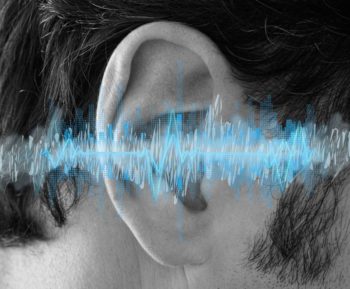There is no universal cure for tinnitus, but there are treatments that make it less of a distraction. Because tinnitus is a side effect of an underlying condition, identifying the problem may lead to a medical or surgical solution. The cure rates for pulsatile tinnitus are quite high once the problem has been identified.
Unfortunately, in many cases the exact cause of tinnitus can’t be identified, or treatment is not possible. However, symptoms can often be managed successfully through a number of different strategies.
Acoustic Therapy

Sounds are used to cover up, or mask, the tinnitus. This distracts your brain and helps you “tune out” the ringing in your ears. Electronic devices that produce white noise, air conditioners, fans, soft music, etc. can all be employed.
Tinnitus Retraining Therapy
Similar in concept to acoustic therapy, tinnitus retraining therapy utilizes a portable sound generator that produces soft patterned tones to help desensitize the brain to the sounds of tinnitus.
Steroid Injections
Meniere’s disease (also known as endolympatic hydrops) has a triad of symptoms (hearing loss, tinnitus, vertigo) that fluctuate due to increased fluid pressures in the ear organs. Fluctuation of hearing and resulting tinnitus can be treated with a series of injections of Dexamethasone (a potent steroid) with an 85 percent chance of reduction in tinnitussymptoms.
Surgery
If you have an acoustic neuroma and suffer from tinnitus, the tinnitus may be resolved through a surgical removal of the acoustic neuroma. In a 1981 research study of more than 400 patients, 45 percent improved their tinnitus with the surgical removal of the acoustic neuroma.
Hearing Aids
Hearing loss causes maladaptive neuroplastic changes in the brain. Hearing aids are used to stimulate the auditory pathways received by the brain. Background sounds can mask tinnitus. Hearing aids can also help the patient better distinguish one sound from another, improving communication and helping with focus and concentration difficulties. Many devices also come packaged with noise generators to replace ambient sounds if amplification alone does not reduce tinnitus.
Counseling
Counseling, sleep and cognitive behavioral or relaxation methods can be practical in helping you manage your tinnitus symptoms by reducing the stress, anxiety and sleeplessness that are often associated with tinnitus. Ear, Nose and Throat, LTD providers teach methods to help you manage your tinnitus symptoms.
Do you experience a ringing in your ears? If so, you are not alone. Tinnitus affects an estimated 50 million Americans—about 20 percent of the population. It can range from a mild annoyance to a full-fledged problem that severely impacts your quality of life.
Call Ear, Nose and Throat, LTD at (757) 623-0526 for more information or to schedule an appointment.